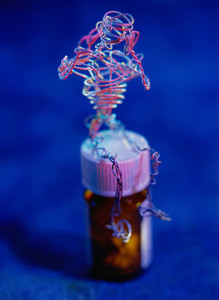Opposition is mounting against the imminent EU-India free trade agreement (FTA) from both AIDS activists and industry. Protestors claim that the agreement will harm access to affordable medicines.
Indian pharmaceutical industry representatives and non-governmental organisations are claiming that the FTA would limit India’s ability to produce generic drugs.
The EU is pushing for intellectual property provisions in the FTA that exceed what international trade rules require. The EU is requesting that a ‘data exclusivity’ clause be included in the FTA. Opponents claim that this would prevent India from producing cheap generics.
Data exclusivity refers to a period during which drug producers can maintain a monopoly on production. Drug companies claim the period is necessary to recoup the high cost of developing new drugs.
The EU on the one hand wants ‘mutual recognition’ and ‘a fair and level playing field for both Indian and European companies’ according to Mr John Clancy, spokesperson for EU Trade Commissioner Mr Karel de Gucht. Protestors on the other hand are worried that the EU-India FTA would limit their access to affordable life-prolonging drugs.
Mr Brian Ager, Director General of the European Federation of Pharmaceutical Industries and Associations, said in an interview with EurActiv that ‘there is no way that anything in the India-EU FTA could or should have any impact on Indian generic companies being able to supply the developing world or their own country with generics’.
Protests
The international medical humanitarian organisation Médecins Sans Frontières, marched alongside more than 3,000 people living with HIV from across Asia and the United Nation’s Special Rapporteur on the Right to Health in New Delhi on 2 March 2011. The protestors were urging the Indian government to stand strong amid pressure from the EU to accept the data exclusivity clause in the FTA.
‘Data exclusivity has proven to be damaging to public health in FTAs in other countries’ said Mr Anand Grover, the United Nations Special Rapporteur on the Right to Health.
More than 80% of the AIDS drugs doctors use to treat 175,000 people in developing countries are affordable generics from India.
India did not grant patents on medicines until 2005, when World Trade Organization rules required it to do so. Despite this Indian patent law prioritised public health, limiting patents to drugs that are new, not just routine improvements of older medicines. Even so this has already caused problems in gaining access to newer medications, which are now patented in India.
India’s patent law has long annoyed multinational pharmaceutical companies, such as Novartis and Bayer, which have even gone so far as to lobby government and to try and overturn the law in the Indian courts.
Next steps
Negotiations for a FTA between the EU and India began in 2007 and are expected to be concluded in spring 2011.
Related article
India under attack
Source: EurActiv, Médicins Sans Frontières








 1
1










Post your comment